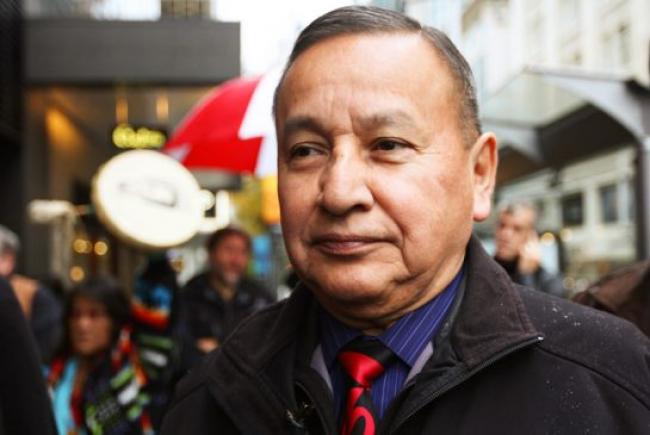Articles Menu

The Union of B.C. Indian Chiefs said it “rejects and repudiates” a federal minister’s comments suggesting that only indigenous consultation — not consent — is needed for controversial pipelines to go ahead.
That flies in the face of both the UN Declaration on the Rights of Indigenous Peoples (UNDRIP), and a spate of Supreme Court decisions, said the 110-member organization’s president Grand Chief Stewart Phillip.
He called natural resources minister Jim Carr’s remarks last Thursday “asinine,” according to a statement released Sunday.
Related stories:
“First Nation's free, prior and informed consent is an integral and fundamental element of UNDRIP,” he stated. “Further, the legal and practical need to secure First Nations consent is featured in Delgamuukw, Haida and the Tsilhqot’in Supreme Court decisions.
“Consent is part of Canadian law.”
Carr, who was sworn into cabinet one year less a day before, told Parliament Hill reporters on Thursday that Kinder Morgan’s proposed Trans Mountain pipeline expansion saw “considered consultation with indigenous peoples by the Crown.”
The $7-billion project would nearly triple the flow of diluted bitumen from Alberta’s oil sands to the Burrard Inlet and increase oil tanker traffic sevenfold.
But a federally appointed panel asked to review the Trans Mountain process found widespread concerns among First Nations over the proposal, even amongst “many” of those who signed letters of support for the project.
Asked about his government’s policy on free, prior and informed consent — a centrepiece of the United Nations Declaration on the Rights of Indigenous People, which Canada ratified last spring — Carr replied:
“Well, we believe that to meaningfully consult and accommodate indigenous peoples in the context of these energy reviews is the principal responsibility of the Government of Canada,” he said Thursday. “That’s what we have done, and that’s what we’ll continue to do.”
But according to UNDRIP, “States shall consult and cooperate in good faith with indigenous peoples … in order to obtain their free and informed consent prior to the approval of any project affecting their lands or territories.”
The UBCIC is a 47-year-old advocacy organization formed in backlash to policies of the previous Liberal government under then-Prime Minister Pierre Trudeau. It represents 110 First Nations, more than half of all the bands in B.C.
[Top photo: Grand Chief Stewart Phillip, president of the Union of B.C. Indian Chiefs, speaks outside federal court in downtown Vancouver in this Oct. 27, 2016 file photo. David P. Ball]